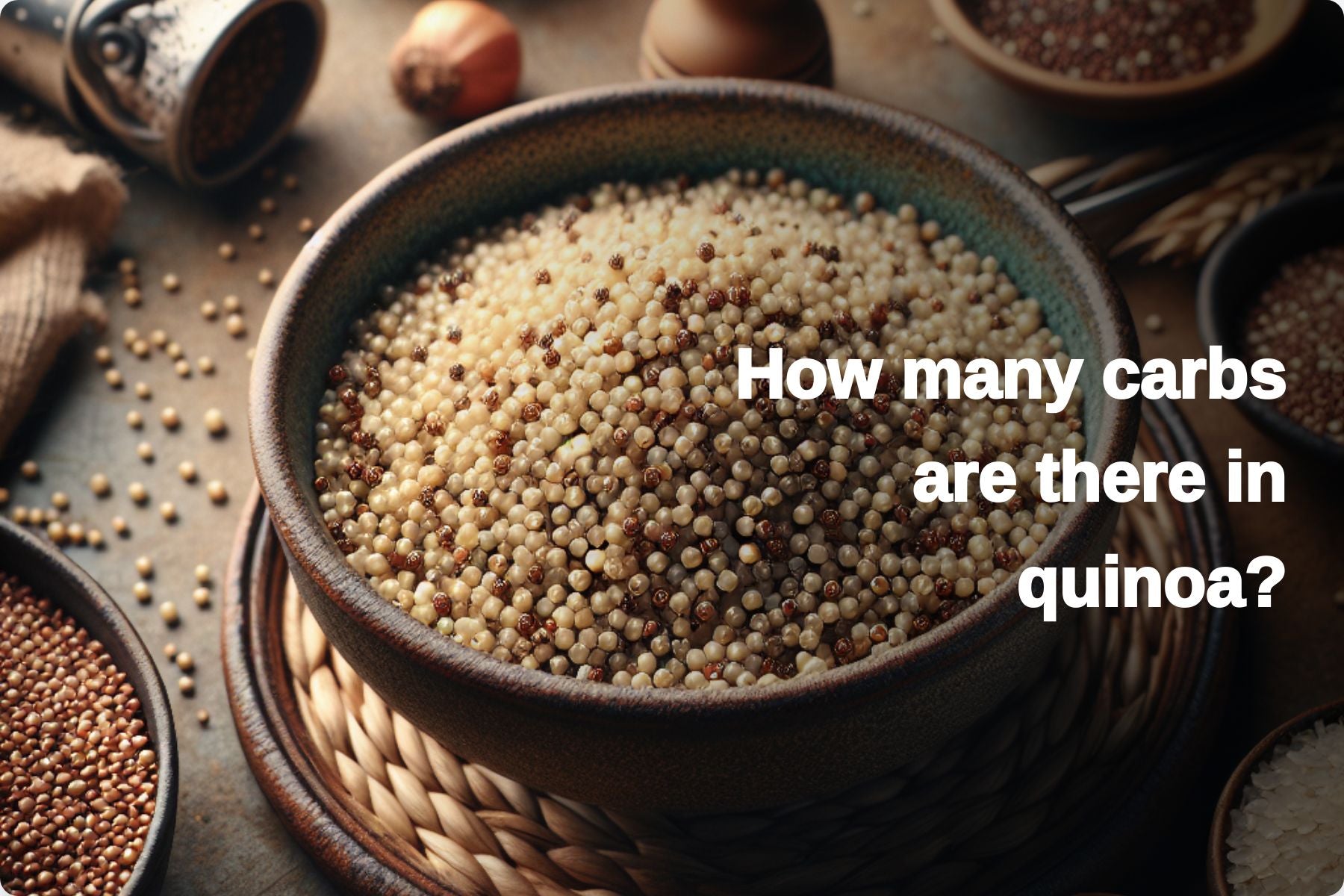
How many carbs are there in quinoa?
Quinoa, pronounced keen-wah, has emerged as a nutritional powerhouse in the world of healthy eating. Hailing from the Andean region of South America, quinoa gained international acclaim for its exceptional nutritional profile and versatility in the kitchen. This tiny seed, often mistaken for a grain, boasts a rich history dating back thousands of years.
In recent times, the buzz around quinoa has led to several questions and misconceptions. One of the most common queries is whether quinoa is a carbohydrate. To answer that, we'll delve into the nutritional components of quinoa and explore its role in a balanced diet. As we embark on this journey, let's separate fact from fiction and uncover the true nature of quinoa in the realm of healthy eating.

Nutritional Profile of Quinoa
Quinoa's nutritional profile is nothing short of impressive. Packed with essential nutrients, this ancient seed stands out for its well-rounded composition. When we zero in on its carbohydrate content, quinoa offers a substantial amount of complex carbohydrates. These are the good guys—the ones that provide a steady release of energy without causing rapid spikes in blood sugar levels.
Nutrient |
|
|---|---|
Calories |
120 kcal |
Protein |
4.1 g |
Carbohydrates |
21.3 g |
Dietary Fiber |
2.8 g |
Sugars |
0.9 g |
Fat |
1.9 g |
Saturated Fat |
0.2 g |
Monounsaturated Fat |
0.5 g |
Polyunsaturated Fat |
1.1 g |
Omega-3 |
0.09 g |
Omega-6 |
0.99 g |
Vitamin A |
1 IU |
Vitamin C |
0 mg |
Vitamin E |
0.63 mg |
Vitamin K |
0.0 mcg |
Thiamin (B1) |
0.107 mg |
Riboflavin (B2) |
0.110 mg |
Niacin (B3) |
0.412 mg |
Vitamin B6 |
0.123 mg |
Folate (B9) |
42 mcg |
Pantothenic Acid |
0.286 mg |
Calcium |
17 mg |
Iron |
1.49 mg |
Magnesium |
64 mg |
Phosphorus |
152 mg |
Potassium |
172 mg |
Sodium |
7 mg |
Zinc |
1.09 mg |
Copper |
0.192 mg |
Manganese |
0.631 mg |
Selenium |
2.8 mcg |
Quinoa in Diets
Quinoa's versatility extends beyond its nutritional profile; it seamlessly integrates into a variety of diets, making it a favorite among health-conscious individuals. For those adhering to low-carb diets, quinoa's moderate carbohydrate content, coupled with its high protein and fiber content, makes it a viable option. It provides a nutrient-dense alternative without compromising on taste or texture.
In the realm of gluten-free diets, quinoa takes the spotlight as a naturally gluten-free seed. This makes it an excellent substitute for grains that contain gluten, offering those with gluten sensitivities or celiac disease a delicious and nutritious option. The absence of gluten in quinoa opens up new culinary possibilities for individuals seeking diverse, gluten-free meal choices.
For those embracing a plant-based lifestyle, quinoa emerges as a plant-powered protein source. Packed with all nine essential amino acids, quinoa is a complete protein, making it a valuable addition to vegetarian and vegan diets. Its versatility in absorbing flavors and adapting to various culinary styles ensures that plant-based enthusiasts can enjoy a protein-rich, satisfying meal.
Quinoa's adaptability makes it a standout ingredient in the ever-evolving landscape of dietary preferences. Whether you're focused on reducing carbs, eliminating gluten, or embracing a plant-centric approach, quinoa proves to be a reliable and delicious ally in achieving your nutritional goals. Let's explore the ways quinoa seamlessly integrates into diverse diets, offering a tasty and wholesome option for a range of dietary preferences.

Quinoa, not just a trend
Quinoa's rich history, coupled with its impressive nutritional profile, positions it as a versatile and health-conscious choice for many. Its complex carbohydrates offer sustained energy, complemented by a substantial dose of dietary fiber, making it a valuable addition to a balanced diet.
The nutritional journey of quinoa extends beyond its carbohydrate content. It caters to a diverse range of dietary preferences, seamlessly fitting into low-carb, gluten-free, and plant-based diets. This adaptability, coupled with its powerhouse of nutrients, underscores why quinoa has become a staple in kitchens worldwide.
As we navigate the complex landscape of nutrition, it's crucial to recognize that foods like quinoa contribute not just to our daily energy needs but to our overall well-being. The question of 'How many carbs are there in quinoa?' is met with the understanding that quinoa offers a blend of macronutrients that supports our health goals. Incorporating quinoa into our diets allows us to embrace a holistic approach to nutrition, where taste meets health, and versatility meets vitality. Let's celebrate the goodness of quinoa as we strive for balanced and nourishing choices in our culinary journeys.
This Blog post is an initiative by Lo! Foods, to provide accurate and Nutritionist / Doctor approved information related to Health. Lo! Foods is India's leading brand for Everyday Functional Foods. Foods designed for specific Health conditions or Needs. Lo! Foods also runs India's largest range of Low Carb Healthy Cloud Kitchens, under the brand names of Lo!, ProteinChef, ATH (All Things Healthy) and DiabeSmart.











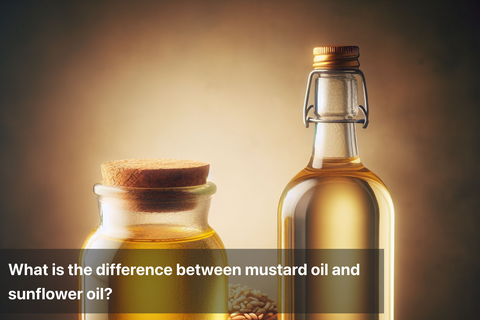
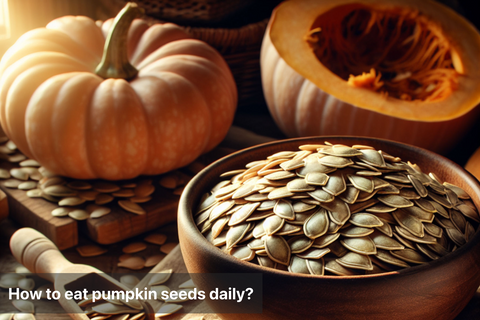
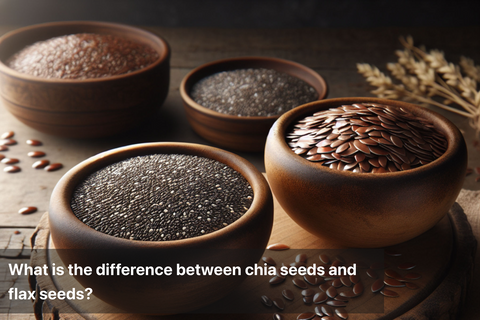
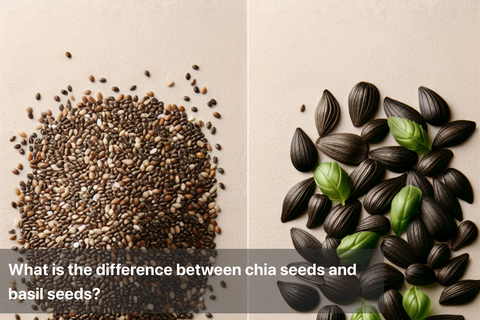
Leave a comment
Your email address will not be published.